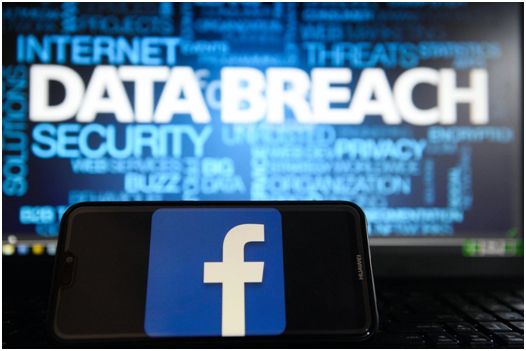533 million Facebook Users’ Personal Data leaked online.
Personal Data of more than 500 million Facebook users has been leaked online by a hacker in a hacking forum on April 3. This news was reported by the security researcher Alon Gal on his Twitter page.
According to Insider. “The personal information includes full names, Facebook IDs phone numbers, email addresses, locations, and birthdates. ”Facebook stated the leaked data was “scrapped due to a vulnerability that the company patched in 2019.” The database was a data breach in 2019, back then, its users’ information was only sold on the dark web but with this recent release, the information is available for free.
Implications.
Notwithstanding the information being 2 and a half years old, the combination of the email addresses, names, and date of birth provides a fitting starting point for scammers to perform impersonation and other cyber-related crimes. Think of how you reset your passwords on different websites or confirm your identity over the phone.
It is very important for Facebook users to be aware of the breach and be on alert for an increase in cyber-related crimes such as phone scams, hacking, impersonations, social engineering attack, and phishing attacks.
How to check if your data is among the Facebook data breach.
People can now enter their phone numbers and email addresses into the website Have I Been Pwned to check if their information appears in the leaked database. The website used to only provide information for leaked emails but Troy Hunt, the creator of the website said on Saturday in his blog, he has decided to add the phone number database to the website so that users can also check the phone numbers.
Steps:
- Open on any browser on a phone, tablet, or computer and go to “https://haveibeenpwnded.com”
- In the search bar, input your email address/phone number linked to your Facebook account and press enter.
The website will let you know if your information is compromised in any data breach.
How to be safe online.
Given that the breach happened in 2019 and the attackers targeted the Facebook system, there is very small the Facebook users could do to protect themselves from the breach.
As an individual, there are certain steps to take that can make your personal information online at a lower risk in the case of a data breach.
- Limit the amount of personal information you share on social media platforms. Information such as date of birth, and home addresses should not be on a social media platform.
- Limit the visibility of profile accounts to a handful of trusted people. Most social media platforms offer such options by that only trusted people will be able to view some personal information you share online such as vacation photos.
- Always use different unique passwords for each of your online accounts. It is difficult to remember all passwords. A password manager will help in remembering all the passwords. In case of a breach in an account, the password will only work for that specific account. You can also activate the 2FA two-factor authentication on all your online accounts.
- Phishing emails: Never click on a link or download an attachment in an email without verifying the legitimacy of the sender.
- Phone call spam/SMS spam attacks: Beware of suspicious phone calls/SMS from unknown numbers. Banks will never call to ask you for sensitive information such as credit/debit card number, online banking PIN, ATM pin, etc.
Certfort Ltd Professional Services for Security Breaches.
Certfort is an ICT organization with highly experienced professionals that can help prevent, manage, and mitigate information security breaches. Our service offering includes:
- How to protect your data and be safe online such as never sharing personal information online such as addresses, telephone, or email addresses.
- How to protect your systems online by regularly updating systems and security software. An updated system is a secure system that is safe from hackers, scammers, and other online threats.
- How to protect their accounts and devices. Certfort will train you on how to create unique passwords for each of your online accounts and how to utilize the password manager application in securing each of your passwords.
- How to report incidents of data breaches that occur on online platforms. We will show you how to maximize the use of privacy tools and settings.

